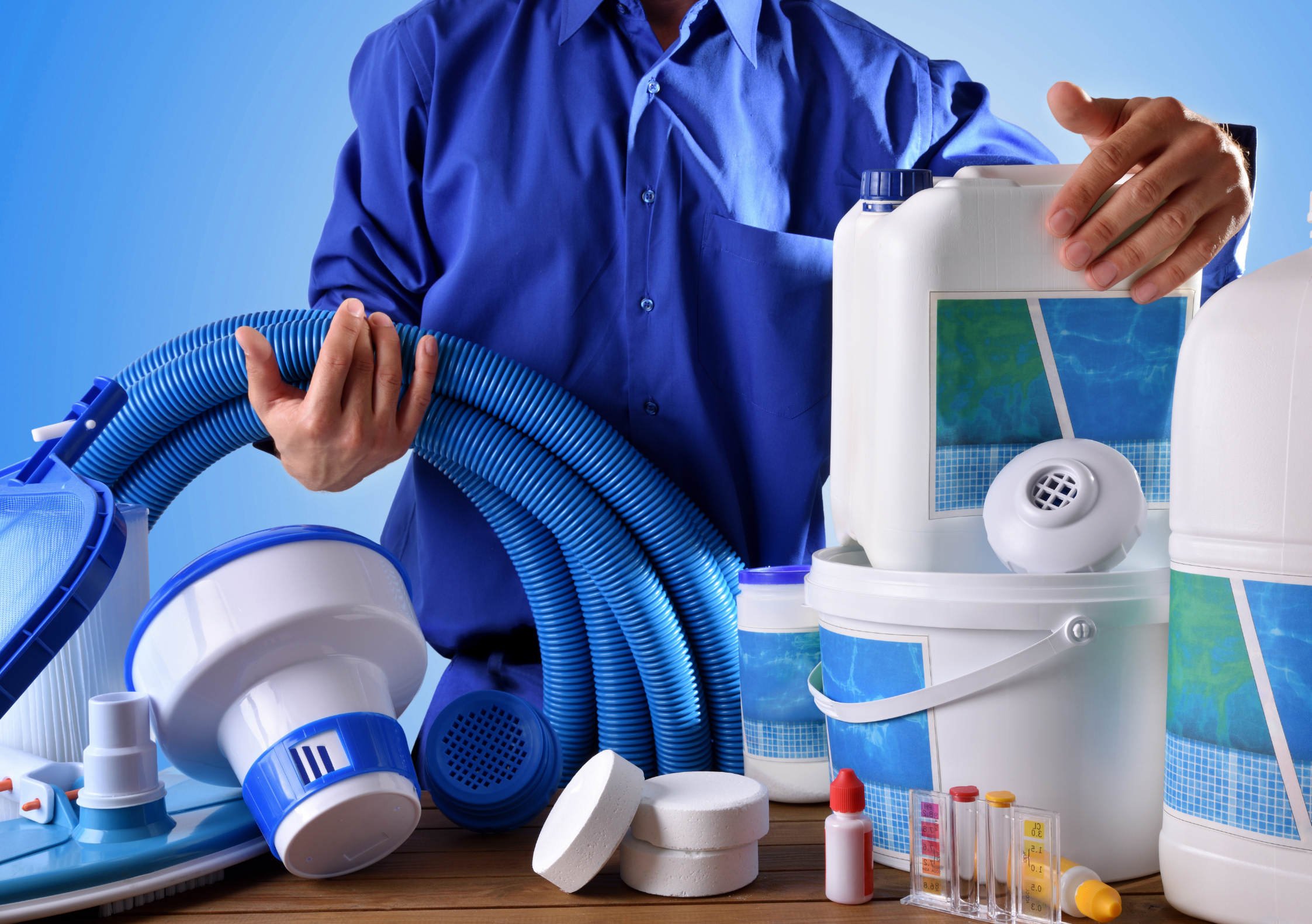Understanding Pool Chemicals: Why Getting the Right Balance is Crucial for a Safe and Enjoyable Pool
Maintaining clean, safe, and sparkling water in your swimming pool requires more than regular skimming and cleaning. The key to a healthy pool lies in balancing the right chemicals to keep the water clear, free of harmful bacteria, and safe for swimmers. Whether you're a seasoned pool owner or new to maintaining your pool, understanding the purpose of each chemical and how they work together is essential. At Pool Engineering, we offer expert advice and support to help you choose the right products, which can be conveniently purchased and collected from our showroom in Sudbury.
In this blog post, we'll explore the different chemicals used in swimming pools and explain why it's so important to get the right ones and maintain the proper balance.
Chlorine: The Sanitizer
What it does:
Chlorine is the most common pool chemical and acts as the primary sanitiser. Its role is to kill bacteria, algae, and other microorganisms that can make your pool water unsafe. It also helps keep the water clear by breaking down contaminants introduced by swimmers, such as sweat, body oils, and sunscreen.
Why it's important
Without chlorine or another sanitiser (like Bromine), your pool water can quickly become a breeding ground for bacteria and algae, leading to cloudy, green water and potential health hazards. However, too much chlorine can cause skin and eye irritation, while too little allows harmful bacteria to thrive. Maintaining the right chlorine level (typically between 1-3 ppm) is essential for safety and comfort.
How we can help:
If you're unsure how much chlorine your pool needs, our team is here to offer free advice. We can guide you through the different forms of chlorine—such as tablets, granules, or liquid—and help you choose the best option for your pool setup. We also stock a range of high-quality chlorine products in our Sudbury showroom, where you can easily pick up what you need.
pH Balancers: Controlling Acidity and Alkalinity
What they do:
The pH level of your pool measures how acidic or alkaline the water is. A neutral pH level on the pH scale should fall between 7.2 and 7.6. Maintaining this balance is critical because an imbalance can affect the performance of your pool's sanitiser, cause irritation to swimmers, and even damage pool equipment and surfaces.
- **pH increasers** (sodium carbonate) raise the pH level when the water is too acidic.
- **pH decreasers** (sodium bisulfate) lower the pH when the water is too alkaline.
Why it's important:
Water that is too acidic (low pH) can corrode metal components, damage pool surfaces, and cause skin and eye irritation. On the other hand, water that is too alkaline (high pH) can lead to cloudy water and reduce the effectiveness of chlorine, allowing bacteria to multiply. Keeping your pH balanced ensures a comfortable swim and helps your pool chemicals work as intended.
How Pool Engineering can help:
Our experts can help you regularly test and adjust your pool's pH balance with the right chemicals. Not only do we offer free advice on pH management, but you can also buy the necessary products at our Sudbury showroom, where we stock a range of pH balancers to suit all pool types.
Alkalinity Increasers: Stabilising pH Levels
What it does:
Total alkalinity measures the water's ability to resist changes in pH. When total alkalinity is too low, your pool's pH can become unstable, causing it to fluctuate widely. Alkalinity increasers (usually sodium bicarbonate) help stabilise the pH levels, preventing sudden drops or spikes.
Why it's important:
Low alkalinity can result in "pH bounce," where the pH level constantly fluctuates, making it difficult to keep the water balanced. This can lead to corrosion, staining, and swimmer discomfort. Maintaining the correct alkalinity level (usually between 80-120 ppm) helps keep your pool water in check and ensures a stable environment for your chemicals and equipment.
How we can help:
If your pool's alkalinity levels are out of balance, our team can provide expert guidance on correcting this with alkalinity increasers. Visit our Sudbury showroom to pick up these products, and we'll happily walk you through how to use them effectively.
Calcium Hardness: Protecting Pool Surfaces
What it does:
Calcium hardness refers to the concentration of calcium in your pool water. If the calcium level is too low, the water becomes "soft" and can erode your pool's plaster, grout, or concrete surfaces. If it's too high, the water becomes "hard," leading to calcium deposits that can cloud the water and clog filters.
Why it's important:
Maintaining the right level of calcium hardness (typically between 200 and 400 ppm) helps protect your pool surfaces and equipment from damage. Too much or too little calcium can lead to expensive repairs and affect your pool's overall appearance and function.
How Pool Engineering can help:
Our knowledgeable team can test your water's calcium hardness levels and recommend the right adjustments. Whether you need to increase or decrease calcium levels, our showroom has the necessary products available for purchase.
Cyanuric Acid: Stabilising Chlorine
What it does:
Cyanuric acid is a stabiliser that helps protect chlorine from being broken down by the sun's UV rays. Without this stabiliser, chlorine levels can drop quickly, making it harder to sanitise your pool, especially during hot summer months.
Why it's important:
Using cyanuric acid helps maintain consistent chlorine levels, reducing the amount of chlorine you need to add. This is particularly important for outdoor pools exposed to sunlight, as it saves you money on chemicals and ensures your pool stays clean for longer.
How Pool Engineering can help:
We can help you assess whether your pool needs cyanuric acid and advise you on the right amount to use. You can purchase this essential chemical from our Sudbury showroom, where we stock a variety of pool stabilisers for your convenience.
Get Expert Advice and Quality Pool Chemicals at Pool Engineering
Balancing pool chemicals can sometimes feel overwhelming, but it's essential for maintaining a clean, safe, and enjoyable swimming environment. Our team of professionals is here to offer free advice and support to ensure your pool stays in perfect condition all year round. Whether you're struggling with water balance or need advice on the best products, we're here to help.
Visit our Sudbury showroom, where you can find a wide range of high-quality pool chemicals, accessories, and supplies. We'll be happy to answer any questions and guide you through the right products for your pool's specific needs.
Contact us today for expert pool care advice, and enjoy the peace of mind that comes with properly balanced, safe, and sparkling water!



